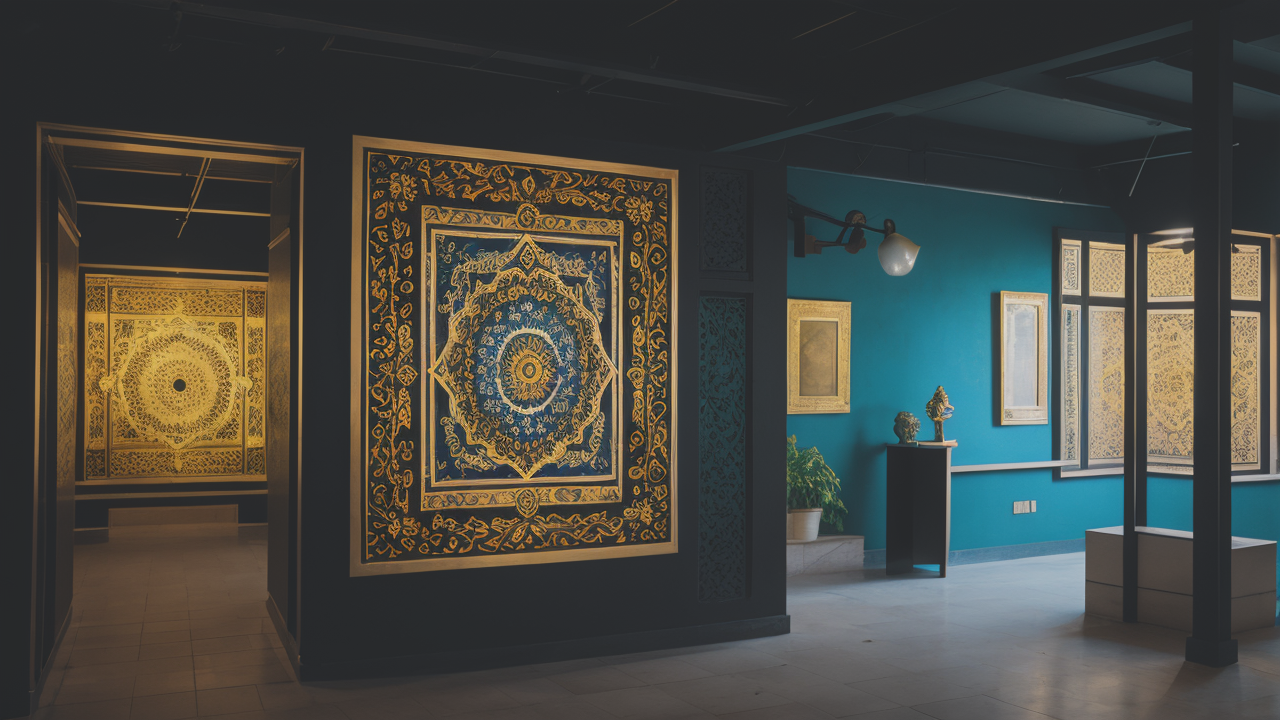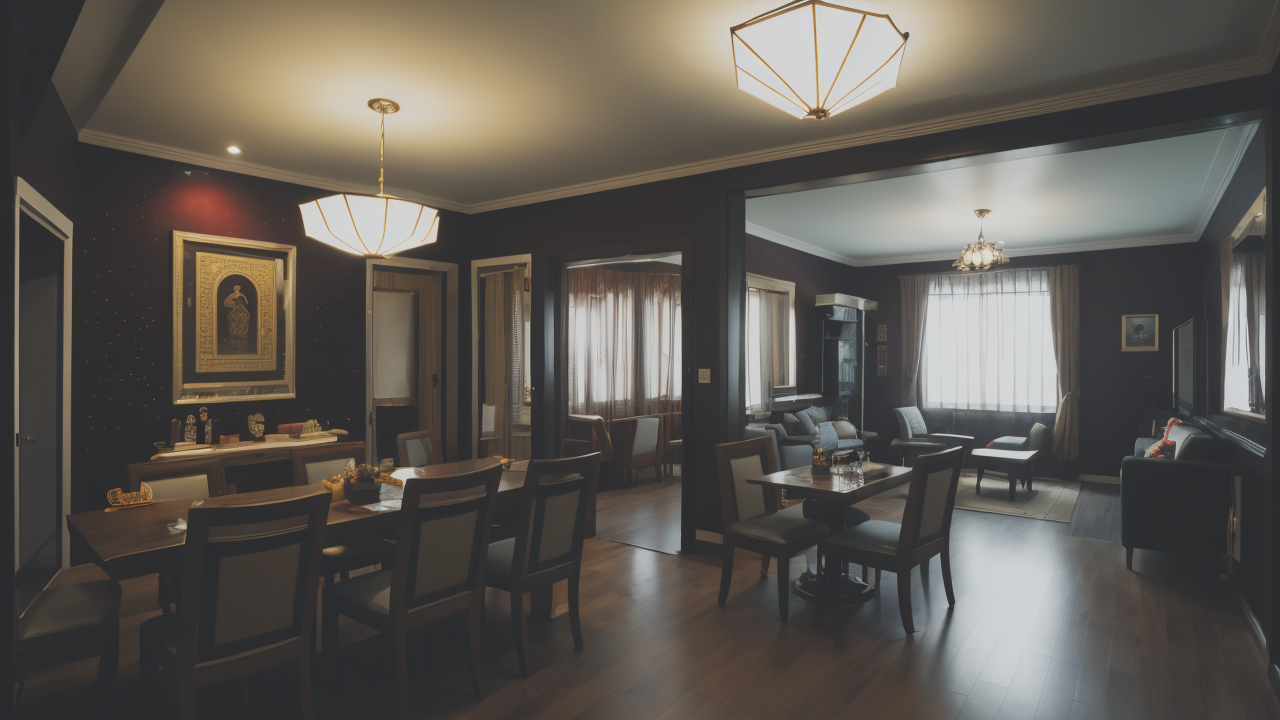
The Art of Wabisabi: Creating Minimalist Wall Art for Modern Spaces
The Intersection of Nawabi Aesthetics and Modern Decor
Historical Significance of Nawabi Decorative Elements
Nawabi decorative elements have deep roots in Indian history. They come from the luxurious courts of Nawabs. These rulers loved beauty and art. Their palaces were full of stunning designs. Nawabi art blends Persian, Islamic, and Indian styles. It uses intricate patterns and rich colors. Gold was a favorite material. It showed wealth and power. Floral motifs were common in Nawabi art. So were geometric shapes and calligraphy. Artists painted these designs on walls and ceilings. They also used them on fabrics and furniture. Nawabi art was more than just decoration. It told stories of culture and tradition. Today, these designs still inspire people. They bring a touch of royal elegance to modern homes. Nawabi art has a timeless quality. It can make any space feel special and luxurious.

Contemporary Wall Artists Inspired by Nawabi Motifs
Today's artists are giving new life to Nawabi designs. They take old ideas and make them fresh. Some use computers to create digital versions of Nawabi patterns. Others mix different materials to make textured wall art. Many artists play with color. They might use bold, modern shades instead of traditional ones. Some prefer a simpler look. They take complex Nawabi designs and make them minimal. Street artists are even using Nawabi ideas in their murals. This creates an exciting mix of old and new. Artists are finding ways to make Nawabi art fit modern tastes. They keep the beauty of the original but add their own style. This new take on Nawabi art appeals to many people. It works well in both homes and public spaces. These artists are helping keep Nawabi traditions alive in a modern world.
Translating Tradition into Modern Wall Art
Innovative Approaches to Nawabi Designs
Artists are finding creative ways to use Nawabi designs in modern wall art. Here are some new ideas:

- Using eco-friendly materials to make sustainable art
- Adding lights to make patterns glow and change
- Making 3D printed Nawabi-inspired sculptures
- Mixing Nawabi patterns with art from other cultures
- Creating wall art that moves or changes with touch
These new methods keep the spirit of Nawabi art while being fresh and exciting. Some artists make abstract versions of old patterns. Others use unusual surfaces like metal or recycled wood. Digital art allows for moving Nawabi designs. This blend of old and new is very appealing. It shows how traditional art can change with the times. These innovative approaches make Nawabi designs fit modern life. They appeal to people who like both history and current trends. The result is wall art that feels both timeless and contemporary. It can make any space more interesting and beautiful.
Case Studies: Nawabi-Inspired Wall Art Installations
Let's look at some real examples of modern Nawabi-inspired wall art. In New York, a hotel has a big mural in its lobby. It mixes Nawabi flowers with Art Deco style. The result is eye-catching and unique. A tech company in San Francisco has metal wall panels. These show intricate Nawabi-inspired patterns. They divide the office space and look great. In a Chicago home, there's a special wallpaper. It has hand-painted Nawabi designs. This makes the living room wall stand out. An art gallery in Los Angeles has an interactive display. Visitors can create their own digital Nawabi patterns. These examples show how versatile Nawabi art can be. It works in many different places and styles. From public areas to private homes, Nawabi art adds beauty. It can be bold or subtle. These installations prove that Nawabi art fits well in modern design.
The Impact of Nawabi Wall Art in the United States
Influence on Interior Design and Architectural Trends
Nawabi-inspired wall art is changing how people decorate in the United States. It offers a special way to make rooms look elegant. Architects are using Nawabi elements on buildings. This makes their designs stand out. The detailed patterns add interest to simple, modern rooms. They look good next to plain furniture. Interior designers use Nawabi wallpapers and murals as main features. These can change the whole feel of a room. They make it look luxurious. Nawabi designs work with many styles. They can make bohemian or modern rooms look better. Designers like Nawabi art because it's so flexible. They can use it to create unique spaces. Nawabi influences make rooms feel warm and special. This trend is growing in popularity across the country. It shows that old art styles can still look fresh and new.

Nawabi Wall Art in Commercial and Residential Spaces
Nawabi wall art is popular in both public and private spaces in the U.S. Hotels use it to create memorable lobbies. Restaurants have Nawabi-inspired murals to set a mood. Stores use these designs to attract customers. Offices add Nawabi art to inspire creativity. In homes, Nawabi wall art is often the main focus in living rooms. It adds personality to bedrooms too. People can get custom pieces to match their style. Some even use Nawabi designs outside, like on patio walls. These patterns work in big and small spaces. They can fit in tiny apartments or huge houses. The versatility of Nawabi art makes it very popular. It's a great way to make any space more interesting. From big buildings to cozy homes, Nawabi art leaves a strong impression. It brings beauty and culture to everyday life.


